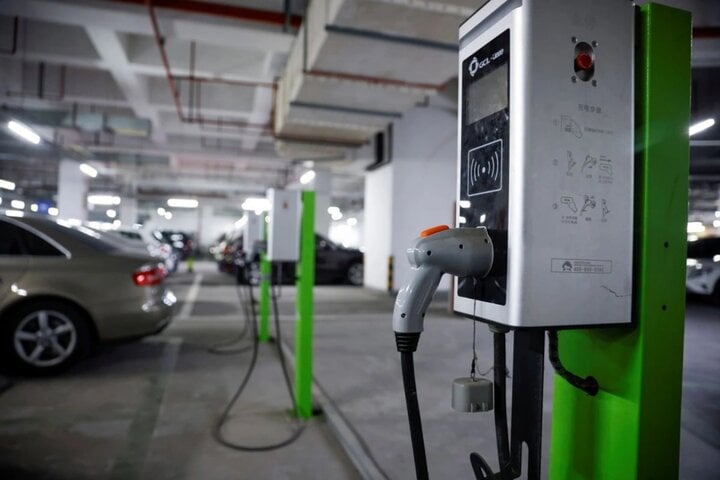Increase in Demand for Electric Vehicle Charging Stations in Apartments and Offices in the US

The demand for electric vehicles (EVs) is on the rise in the United States. As more people switch to EVs, the need for charging stations has become essential, especially in apartment buildings and offices. Many real estate developers are realizing the importance of providing charging infrastructure to attract and retain tenants.
The Impact on Apartment Buildings
Developers of a $350 million apartment building in downtown Los Angeles had to make significant adjustments to their plans to accommodate EV charging stations. Initially, the project director, Hamid Behdad, considered the demand for charging stations excessive, but he eventually adhered to the unplanned requests from the planning commission.

Behdad quadrupled the number of charging stations in the apartment building. When the building was completed and ready for occupancy, Behdad acknowledged the importance of the decision. He admitted that without the 90 charging stations, it would have been challenging to sell the units.
The situation in Los Angeles reflects a broader trend across many US cities. Real estate developers are racing to install charging stations in their apartment buildings to avoid potential business disruptions. With the increasing demand from prospective buyers and tenants, projects without charging infrastructure risk lower occupancy rates.
The Importance of Charging Stations for Tenants
Jackie Impellitier, the Vice President of Operations at ZRS Management, a company managing 76,000 rental units, revealed that they are rushing to equip their parking garages with Level 2 charging stations. These charging stations, which take approximately 3-8 hours to fully charge an EV, will be billed along with the tenant’s electricity.
Impellitier emphasizes that charging stations are no longer just amenities but necessities to attract and retain tenants. Real estate investors are at risk of losing tenants if they fail to provide convenient and accessible charging services. This shift in perspective has occurred as the automotive industry has witnessed a surge in the production of electric vehicles.
The Impact on Commercial Real Estate
The growing presence of charging infrastructure also influences the location decisions of businesses and corporations. According to a survey by ChargePoint, 90% of property managers consider the accessibility of charging infrastructure when evaluating potential business locations.
Several renowned retailers, such as 7-Eleven, Walgreens, Ikea, Kohl’s, Walmart, Starbucks, Whole Foods, Taco Bell, and Cinemark, are aggressively installing charging stations at their premises. Subway, for instance, has plans to build “battery parks” – a combination of restaurants, playgrounds, and green spaces that also serve as charging stations. These parks will be located at their new business locations across the United States.
The demand for charging stations is not limited to residential properties but also extends to commercial real estate. The presence of charging infrastructure is becoming a decisive factor for businesses in choosing their office spaces and retail locations.
As the popularity of electric vehicles continues to grow, it is essential for the real estate industry to adapt to this new transportation trend. Developers and property owners must prioritize the installation of charging stations to cater to the increasing demand. By doing so, they can attract environmentally conscious tenants and businesses while remaining competitive in the evolving market.
